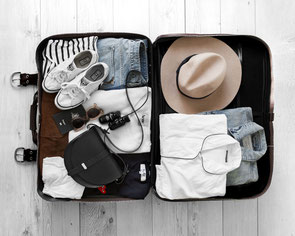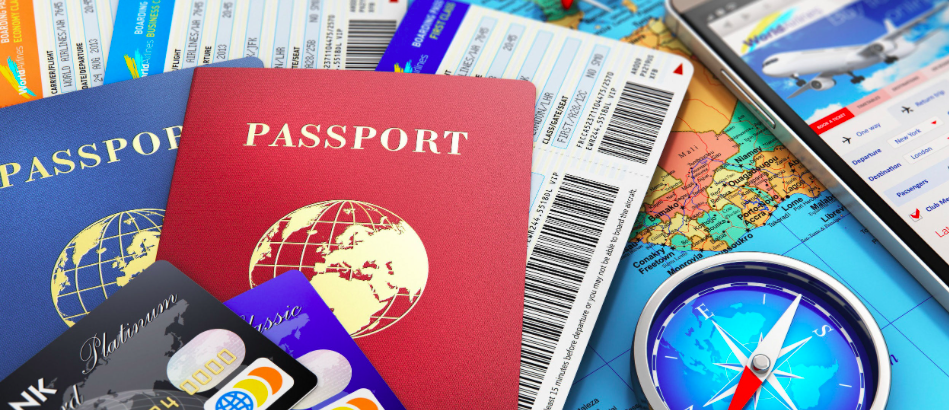Tips for your Cocos Liveaboard
Temperature & Diving conditions

Average water temperature is 79 F to 84 F (26 C to 29 C), although it can be a few degrees lower under the occasional thermocline.
Most of the action is at 60-90 feet /18-27 meters, and most dives are between 60-130 feet / 18-40 meters. The safety limit is set at 130 feet / 40 meters and a dive computer is necessary. Visibility averages 60-100ft/18-30m.
What to bring?
- Valid internationally recognised dive license equivalent to Advanced Diver (PADI) or Open Water dive license with the Specialty of Deep Diver. We also recommend having a minimum of 25 hours of diving experience.
- All relevant forms completed with the required information (medical, application etc.) - should be provided at least one month prior to sailing date!
- Dive / travel insurance that covers Hyperbaric and Evacuation treatment
- Nitrox certificate (for those wishing to dive Nitrox)
- Your own dive equipment; rental equipment is available (please indicate need on application)
- Liability Release (to be completed on board)

The vessel provides tanks (air or Nitrox tanks, 80 cubic ft aluminium, 12 litres) and weights for your use. We strongly recommend to bring your own dive equipment.
Please note, our tanks are standard yoke (INT), not DIN. Please notify our offices in advance if you need an adaptor.
If you would like to rent the dive equipment in Cocos we can organise this for you. Please indicate on your application form what equipment you will require.
Otherwise, the following items are the diver’s responsibility:
• Certification card
• Mask, Snorkel, Fins, Booties, Weight belt
• BCD - Buoyancy Control Device (required)
• Regulator w/alternate air source, submersible pressure and depth gauges (required)

• Dive computer
• Wetsuit – 1/8" to 3/16" (3 – 5 mm)
Additional suggested:
• Hooded vest
• Gloves*
• Dive light*
• Repair kit w/ spare parts
• Safety flag (will be provided by the ship)
• DiveAlert air horn for regulator (will be provided by the ship)
* Items Available for rent
Most of our guests bring their own complete set of dive gear. This is the ideal situation, however, due to weight limits or additional travel plans some of our guests choose to rent gear. We strongly recommend that you bring your own mask, gloves, booties, fins, hood or hooded vest and computer. A personal wetsuit is also a good idea if you have space. Diving in Cocos Island can be challenging and it is important that you are comfortable.
What to pack for your Cocos Dive Liveaboard?
- Soft luggage for easy storage
- Very casual attire/clothing
- All linens and soaps are supplied
Packing for a live-aboard trip is much easier than packing for a land-based vacation.
The climate doesn’t require much more than shorts, T-shirts and swimsuits though at sea the winds can be cold and jackets are often necessary.
Soft luggage is recommended as it takes up very little space when empty.
Sunscreen, sunglasses, a visor, raincoat, lightweight sweater or jacket, long-sleeved shirt, backpack, tevas/sandals and a hat are recommended.
All linens (including sheets, comforters, bath towels, hand towels, dive towels) are provided on board.
Arrival / Departure
- Valid passport required (must be valid for at least 6 months)
- Transfers from / to San Jose to / from vessel are included in your package
- Two airports: San José (SJO) airport recommended
- Pick up from selected hotels
Getting to Costa Rica & Baggage Restrictions
You must arrive at least one night prior to the departure date.
Costa Rica has two international airports. For optimum convenience, we recommend that you fly directly to San José (SJO) rather than the more distant Liberia International Airport.
Pack lightly since you will be dressing for warm tropical weather. Please check with your airline for weight allowances and baggage policies. Airlines have ever-changing baggage limitations that can affect divers and photographers, so always check for updates on regulations.
Currently, Costa Rican customs places no limitation upon entering the country with personal equipment such as diving gear, cameras and video equipment or even computers meant for personal use. However, we do recommend that if you are carrying excessive amounts of equipment or professional gear, you simply declare that gear to customs.
All passengers must have a valid passport to enter Costa Rica. Most U.S., Canadian, EU and Japanese citizens do not require a visa. If in doubt we recommend checking with the nearest Costa Rican consulate to see if you will need a visa.
Vaccinations
Please note, if you are traveling to Costa Rica from some South American countries then you will need to have a yellow-fever vaccination prior to traveling in order to enter Costa Rica.
Arrival in San Jose
Upon arrival in San Jose, you may take a taxi to your hotel. There are always taxis available at the airport and minivans for those of you who have a lot of gear. We can also arrange for your airport pickup as well as for accommodations at several fine hotels in San Jose. The night before departure, an Undersea Hunter/Galapagos Shark Diving representative will inform you at your hotel of your precise pickup time for transport to our dock and your awaiting vessel. Please note that we only pick up from a set list of San Jose hotels to go down to the vessels. The evenings on shore are at your leisure. Hotel nights and meals before and after the cruise are not included in the charter.
Transfer to the vessel
Please note that we only pick up from a set list of San Jose hotels to go down to the vessels. On the day of departure to Cocos, generally between 8 AM and 1 PM, you will be picked up from your hotel and transferred by Fiesta Tours to Puntarenas, the seaport village where you will board the vessel. The drive takes about 3 hours, including a stop on the way for a snack or lunch. The price of this meal is not included in your trip package. The ride will give you an opportunity to view some of the lush tropical forests and rich farmlands of the region.
Transfer from the vessel
At the end of your Cocos adventure, you will usually disembark the boat at 8 AM and be transferred back to your hotel in San Jose. The transfer takes approximately 2 hours, give or take.
Other transfers
If, for some reason, you should need travel to or from Puntarenas, other than the by the transport offered by the Undersea Hunter Group, a taxi service is, of course, available. The cost of independent transportation can run in excess of $100 one-way.
Land arrangements
While you are here in Costa Rica, it is certainly worth the extra time to experience some of the other aspects of our little country that truly make it a natural wonderland. Active volcanoes, white water rafting, zip-line tours, mountain biking, pristine jungles, coffee plantations, horseback riding, visits to craft centers and of course some of the most beautiful beaches in the world are among the activities and destinations available to you here. After all, you've come this far! We would be happy to arrange one-day tours or longer trips to more remote areas, at your request. Only Costa-Rican approved companies recommended by USHG will operate these tours.
Language
Spanish is the official language, but English is widely spoken within regions associated with tourism.
Time Zone
Costa Rica and Cocos Island are 1 hour behind US Eastern Time during the North American winter and 2 hours during the North American summer.
Departure from Costa Rica
We strongly recommend staying one night after the return to land, in case of any unforeseen delays. You disembark the ship in Puntarenas at 8:00AM the morning of departure and you will be transferred to your hotel in San Jose.
Departure tax: There is currently a departure tax of $29 US as of October 2017.
Currency & Onboard Charges
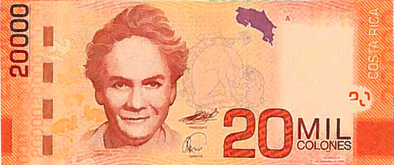
Colones are the national currency, with $1US equal to ¢574 (colones) and 1,00EUR equal to ¢647 (colones) as of March 2020. International credit cards and US dollars are widely accepted in regions associated with tourism.
Hotels and banks will exchange US Dollars for Costa Rican colones.
Major credit cards are accepted on board.

Though all meals, most beverages, transportation from and to the airport, and much more has been taken care of with your trip payment, there are additional items which you may charged to your onboard bill. These include retail items (shirts, scuba accessories, etc.), scuba instruction, rentals, alcoholic beverages, and crew gratuities.
The bill may be paid at the end of the trip using cash (USD), Visa, MasterCard or American Express. We cannot accept personal checks or travellers checks onboard.
ATM machines are available in San Jose.
Crew gratuities are not included in your package. Since it is customary to tip crew members, many people ask us what tip amount is appropriate. This is a very personal decision, as tips are your way of expressing satisfaction. Generally the tip is given to the captain who distributes it equally amongst the crew. Please note that we do not dictate or include tips.
Safety
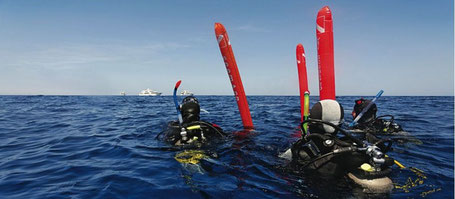
1. All divers must bring proof of certification by a national certifying agency. The certification must allow the diver to dive to the recreational dive limit of 130 feet (40 meters). The Dive Master will request to see your certification before you are allowed to dive. If you are certified for Nitrox, then remember to also bring this certifications.
2. All divers must be experienced divers (Please note, the minimum required level of certification to dive at Cocos is Open Water with the Specialty of Deep Diver. We also recommend having a minimum of 25 hours of diving experience.
3. All divers must carry a dive computer.
4. Diving activities must cease when the consumption of alcohol begins.
5. A DiveAlert, a surface signalling device, and an Personal Location Beacon while diving are strongly recommended.
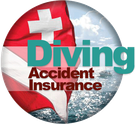
6. Dive insurance is required
Due to the nature of this trip and the very remote nature of the destination, all divers are required to have dive accident insurance when diving in the Cocos, and to note the policy number on their application form.
Buying the appropriate travel and/or dive insurance before your holiday starts will make your vacation less stressful and more enjoyable.

7. Additional: which insurance to consider:
- Emergency medical costs in a foreign country
- Diver-specific accident and recompression chamber coverage
- Medical evacuation coverage
- Dive and camera gear coverage
8. Medical Support On-board: We have a well-equipped first aid kit including oxygen on-board. You should bring anti-seasickness medicine and ear drops if you feel you will need them. Please inform us and especially the dive guides if you are taking medication or suffer from allergies.
9. Safety Onboard the ship: Life rings are located on either side of the boat, and life jackets for all passengers are located in the lockers on both sides of the sun deck. Fire extinguishers are located in the hallways leading to your cabins. Emergency exit from the aft passenger cabins is possible through an overhead hatch above the doors of cabins 7 and 8. The emergency exit for the forward passenger area is through a door in cabin 4 and up the stairs in the engine room.
10. Re-compression Chamber: The nearest Re-compression Chamber is in the capital of Costa Rica, San Jose, about 36 hours sailing from Cocos, the implications of which are obvious.
11. Smoking is strictly prohibited throughout the boat, each boat has a designated location on the sundeck if one wishes to smoke.
Seasickness / Crossing
In case of rough weather or if you have a tendency towards seasickness, come prepared with motion sickness medications or Transderm patches from your doctor. When all passengers are boarded, the vessel will take 32-36 hours to reach Cocos Island. Crossings are normally calm, but to prevent motion sickness we advise you to take the necessary precautions. At the conclusion of your trip, we will return to Puntarenas where a bus will be waiting to return you to your San Jose hotel.
Communication Onboard
The vessels maintain constant radio contact in the event of any emergency. Your family and friends can contact our office at telephone: +506-2228-6535 or +506-2228-6613. We are happy to let family and friends know how you are when they call our office.
The ship's main office is open 8.00 am - 17.00 pm Costa Rican time Monday - Friday (except for national holidays). Outside of those hours our emergency contact number is +506-8735-2392 (please leave a message if necessary).
Please understand, however, that you will be in a remote area and it is preferable that personal communications to the boat be limited to emergency use only. We also now keep a satellite phone on board, which costs $3.50 per minute.
Cocos Island is now equipped with a cellular phone tower, as well as a public phone. When in closer proximity to the Island at certain locations (assuming your cell phone works in Costa Rica), it is possible to use your cellular phone services, but keep in mind, it is still an international call. Do keep in mind that in general it is difficult to get a good signal at the island.
Electricity & Entertainment
The vessels have both 110 and 220 volts ac. The cabins have 110 volts ac only.
The vessels have standard US and European sockets (but not British style sockets).
There is a variety of nightly entertainment available on board: slide shows, DVDs, music, games and much more. Please feel free to bring along your favourites.
Meals & Beverages

The menu aboard offers a delicious combination of International and local cuisine. Meals are varied and well balanced, and we also offer delicious snacks between dives. Food is abundant with plenty of fresh tropical fruit and salads and is served buffet style.
Please let us know of any special dietary needs or requests, but try to be lenient, as storage and preparation space is limited.
Soft drinks: Free, Bottle of wine: $15 - $35.
Hard liquor is not available on board but our guests are welcome to bring their own, which should be purchased prior to boarding.







